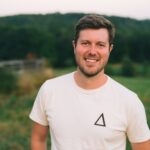The second episode of a two-part series where guest Neal Collins highlights two novel regenerative real estate projects in the U.S. Pacific Northwest.
The projects show how regenerative development processes can transform neglected land into thriving, eco-friendly communities that improve local economies. For impact investors, these detailed examples show the potential to generate solid risk-adjusted returns by thinking differently about real estate development.
The Salish Sea Farm project starts with abandoned farmland that was thought to have little potential for commercial development. Regenerative thinking turned undervalued land into a project with a strong pro-forma financial plan. The plan includes a regenerative farm, more than 200 residences, a hotel with three farm-to-table restaurants, and a commercial center.
The Marrowstone Inn project shows how regenerative development can blend hospitality with environmental restoration and also strengthen the local economy through unusual financing.
Mentioned in this episode:
- Neal Collins
- Latitude Regenerative Real Estate
- Regenerative Real Estate
- Impact Investment
- Community Engagement
- Puget Sound
- Salish Sea Farms
- Point Roberts
- Marrowstone Island
- Steve Brisbane
- Wendell Berry
Neal Collins is co-founder of Latitude Regenerative Real Estate Development with agents and partners across North America. He also hosts The Regenerative Real Estate Podcast, where he has interviewed dozens of people with diverse knowledge and experience in creating sustainable, thriving communities.
In the past few years, Latitude has joined a small but growing number of regenerative real estate development companies at the forefront of this fast-changing field. Their work exemplifies how regenerative principles can transform real estate and support local economies.
Subscribe
Select topics and stay current with our latest insights.



